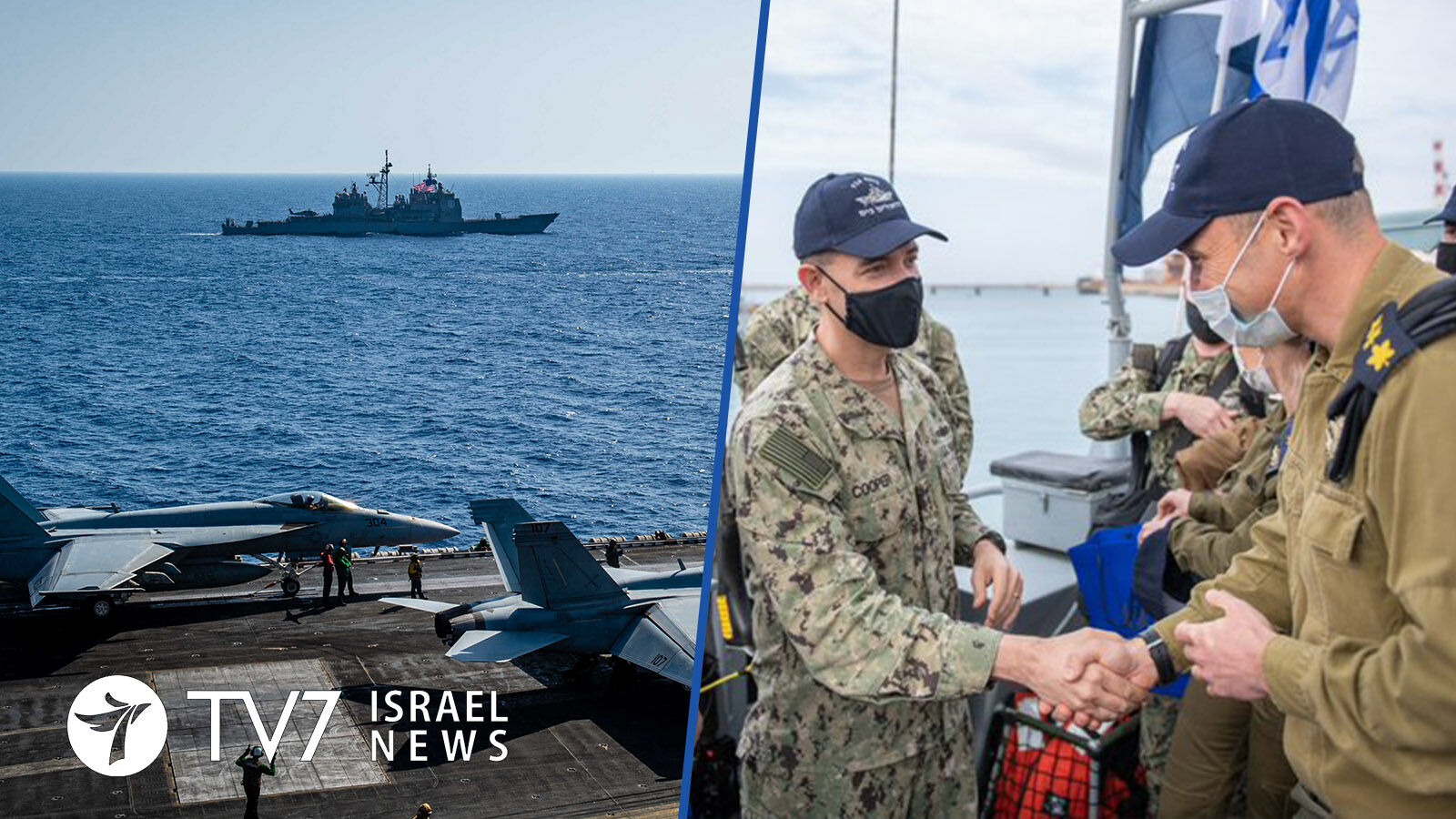US Naval Forces Central Command (NAVCENT) Commander Vice Admiral Brad Cooper visits Israel amid mounting tensions with Iran and its regional proxies.
By Jonathan Hessen and Erin Viner
During his visit, Admiral Cooper held a lengthy work-meeting with IDF Chief of Staff Lieutenant General Aviv Kochavi, alongside Commander in Chief of the Israeli Navy, Vice Admiral David Saar Salama and other senior officers and intelligence practitioners.
The NAVCENT leader conveyed Washington’s strong “commitment to the enduring strategic relationship” with Jerusalem, stressing that the US-Israel “maritime partnership is built on trust and shared interests in maintaining security and stability in the surrounding seas.”
Gen. Kochavi echoed the significance of “maritime cooperation between the IDF and the US militaries,” and pledged Israel’s support of American forces deployed throughout the region in a joint mission to “continue to face the challenges ahead in order to maintain stability in the Middle East.”
It should be noted that the US 5th Fleet, which operates under NAVCENT, intercepted “a stateless fishing vessel” in the North Arabian Sea on 20 December 2021, along a route historically used to unlawfully traffic weapons to Houthi rebels in Yemen in violation of a United Nations Security Council embargo and US sanctions. The US forces seized 1,400 AK-47 assault rifles and 226,600 rounds of ammunition believed to have originated in Iran discovered on board the ship, which was manned by Yemeni nationals.
US naval warships in 5th Fleet confiscated about 8,700 illicit weapons last year, according to an official statement. It is believed, however, that many undetected caches of Iranian weapons escaped capture and succeeded in reaching Tehran’s regional proxies in Yemen, as well as Lebanon, Syria, Iraq, the Gaza Strip and elsewhere.
Thousands of rockets were fired indiscriminately from the Hamas-controlled Gaza Strip at densely-populated civilian areas in Israel during last May’s 11-day Operation Guardian of the Walls conflict between the sides. Saudi Arabia has faced a similar threat from the Iran-backed Houthi terrorists.
According to the Riyadh-led Coalition Spokesman Brigadier General Turki Al-Malki, the Houthis fired hundreds of ballistic missiles at Saudi Arabia in 2021, many of which were launched from civilian areas in Yemen under control of so-called advisors belonging to Iran’s Islamic Revolutionary Guards Corps (IRGC) and its Lebanese Hezbollah proxy.
The Houthis have adopted methods employed by the military arm of the Ayatollah regime and Hezbollah with blatantly use of civilian structures essential for humanitarian relief as bases. Saudi Arabia has declared any civilian installation utilized by the Iranian-proxy for terror-related as legitimate targets, despite Western criticism.
The administration of US President Joe Biden revoked designation by his predecessor Donald Trump of the Houthis as a Foreign Terror Organization.
